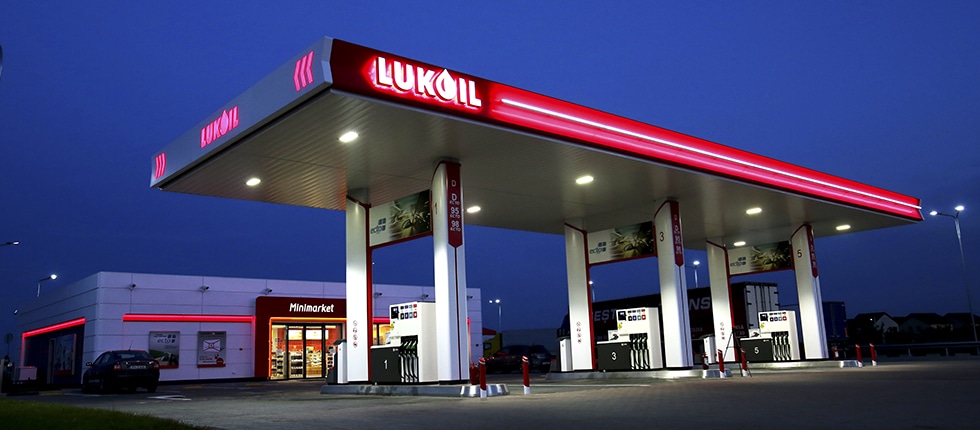The High Court granted a summary judgment application in a breach of contract claim, and delivered a clear signal regarding reliance on contractual force majeure and trade sanctions provisions. The case in question is Litasco SA v Der Mond Oil and Gas Africa SA & Anor (Rev1) [2023] EWHC 2866 (Comm). The central question was whether payments to a Russian Oil Company were prohibited as sanctioned?
The High Court rejected the various defences and considered the interpretation of “control” under UK sanctions law, following the recent Court of Appeal Judgment in PJSC National Bank Trust and another v Mints and others [2023] EWCA Civ 1132.
The decision in Litasco therefore clarifies two key points:
- Force Majeure for Debts: Facing difficulties isn’t enough to avoid paying existing debts. The court sets a high bar, requiring almost impossible circumstances to trigger “force majeure” for these situations.
- Sanctions and Control: To be blocked under sanctions for “ownership and control,” a sanctioned person needs real, provable control over the company’s business decisions, not just a theoretical possibility of influence.
Force Majeure Distinctions
The key issue was how broadly “force majeure” applies to debt payments. The court ruled that companies cannot simply use temporary difficulties to avoid paying existing debts. Even when “hindered” by events, a significant challenge, close to but not quite impossible performance, is required to trigger force majeure for debt.
Implications for Debt Obligations
This court case makes it harder for companies to use “force majeure” as an excuse to skip out on debts. The ruling clarifies that financial difficulties alone aren’t enough. There needs to be a very serious problem, almost impossible to perform the contract, before a company can avoid debt obligations using force majeure.
Ownership and Control Test under UK Sanctions Regime
The ruling also provides crucial insight into the application of the “ownership and control” test within the UK sanctions regime, offering clarification on recent obiter comments made by the Court of Appeal in Mints v PJSC National Bank Trust [2023] EWCA Civ 1132.
The court clarified the “ownership and control” test for sanctions. It’s not enough that someone sanctioned could maybe influence a company. The judge says there needs to be real, provable control over the company’s business decisions, not just a theoretical possibility.
Concluding Remarks and Lessons:
This landmark decision by the High Court in Litasco SA v Der Mond Oil and Gas Africa SA & Anor (Rev1) [2023] EWHC 2866 (Comm) provides a robust legal framework for the interpretation of force majeure clauses and the application of the “ownership and control” test in the context of UK sanctions.
This ruling helps businesses navigate contracts by highlighting two key points: 1) a significant difficulty is needed to claim force majeure, and 2) a practical approach is used to assess “control” under UK sanctions.
Here’s what businesses need to know:
- Read the fine print: Carefully review the wording of your force majeure clause. Does it excuse performance only when completely impossible, or also when significantly hindered?
- Consider the situation: Courts will look at the specific obligation and if alternative ways to fulfill it exist before accepting a force majeure claim.
- Genuine hardship matters: The judge distinguished companies truly impacted by force majeure from those simply unable to pay.
Sanctions and control:
- The court ruled that even if a company was somehow linked to a sanctioned person, it wouldn’t prevent a judgment for them.
- This case sets a precedent for a practical approach to “control” in sanctions defenses.
- However, there’s still a call for clearer guidelines on this issue.
Avoiding costly litigation disputes
We understand disputes can be stressful and expensive. That’s why we prioritise efficiency. Our in-depth outset investigation and case analysis ensure we choose the best course of action for you, saving you time and money.
Early intervention is key.
The sooner you involve our solicitors and barristers, the better. We advise on strategic options to minimize legal costs. Our extensive litigation experience allows us to provide practical and clear legal advice, reducing your financial risk.
Explore all options before court.
We believe in exploring alternative dispute resolution (ADR) whenever possible. Our skilled negotiators excel at mediation and confidential negotiations, aiming for an advantageous early settlement.
If a fair settlement isn’t achievable, our experienced litigators will expertly guide you through the court process. We are there for you, every step of the way.
Check Your Litigation Case ✔
We analyse your case prospects. We deliver strategic legal advice at your first fixed fee meeting. We get optimal legal results. Want our opinion on your case? Click below or call our lawyers in London on ☎ 02071830529
